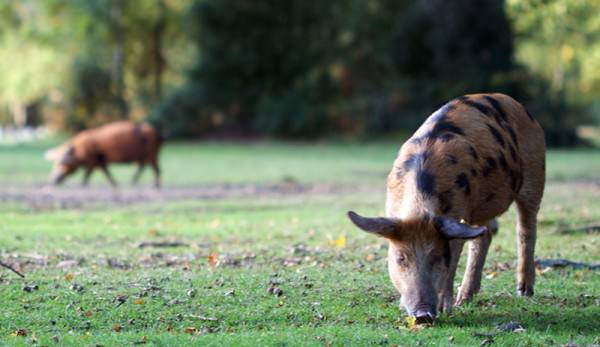Pigs are an important part of agriculture around the world. They have been domesticated since thousands of years. Understanding different pig breeds can be crucial for anyone interested in sustainable living or farming pigs. This guide highlights the unique characteristics of different types of pigs and their suitability for various environments.
Understanding Pig Breeds
Breeds of pigs are selected for different purposes. These include meat production, lard, or even companionship. Some breeds are faster growing, while others may be better suited to free-range farming. The right breed is essential for ensuring efficiency, profitability and sustainability in pig production.
Popular Breeds of Pigs
1. Yorkshire (Large white)
Yorkshires are one of the most popular breeds in the world, and they’re known for their excellent growth rate and lean meat. The pigs have a white body with erect ears and long skin. This makes them perfect for commercial production of pork. Yorkshire pigs have a strong maternal instinct, and are often used to increase litter size in crossbreeding.
2. Duroc
The reddish brown coat and the floppy ears of Duroc pigs make them easy to identify. The Duroc is one of the most hardy breeds and adapts well to different climates. They are a favorite breed among producers because of their rapid growth, high quality meat, and efficient feed conversion. The Duroc is also known for its docile disposition, which makes them easier to handle.
3. Berkshire
Berkshire pigs, which originate from England are prized by consumers for their superior quality meat. The pigs have a dark coat with white markings around their face, legs and tail. Berkshire Pork is a popular choice for gourmet markets because it’s flavorful, juicy and well-marbled. They grow relatively quickly and are friendly.
4. Hampshire
Hampshire pigs can be identified by their distinctive white belts on their shoulders and their black bodies. The pigs are popular for their excellent muscling and lean meat, which makes them an ideal choice for commercial production. Hampshire pigs also grow quickly and are hardy, making them suitable for intensive systems and pasture-based ones.
5. Tamworth
Tamworth pigs have been around for centuries and are a traditional breed. The pigs have a reddish-brown coat and long snouts. They are also excellent foragers. This makes them ideal for free-range farming. They are a breed that is highly valued for heritage and small-scale farming because of their lean meat.
6. Gloucestershire Old Spot
This rare breed is known for its white fur with black spots. Gloucestershire Old Spots, known for their gentleness, are excellent foragers who thrive on pastures. The meat of these animals is flavorful and tender. Sustainable and organic farming is a great choice.
7. Landrace
They are distinguished by their white coats and long ears. Crossbreeding is common because they have high fertility. Landrace pigs are used for commercial pig farming because they produce high-quality, lean meat.
8. Kunekune
Kunekune pigs are native to New Zealand. They are known for being small, friendly, and having a round body. They are kept as pets, or to produce small amounts of meat. Kunekunes are able to thrive on a diet based on pasture and only require minimal additional feeding.
How to Choose the Right Pig Breed
The right pig breed for your farm depends on the climate, space available, and goals. Consider these factors:
- Yorkshire, Duroc Hampshire and Landrace are excellent options for commercial meat production due to their rapid growth rate and high meat yield.
- Tamworth pigs, Gloucestershire Old Spot pigs, and Berkshire pigs make excellent pasture-based hogs.
- Kunekunes are perfect for small-scale or pets due to their friendly nature and manageable size.
Conclusion
Understanding the different breeds of pigs can help farmers and homesteaders to make informed decisions when raising pigs. There is a breed for every need, whether you want pigs to be used for sustainable farming or for companionship. Selecting the right breed of pigs will ensure that you have a successful pig farm. Whatever breed you choose, it is important to use responsible farming methods and provide proper care for healthy pigs.


